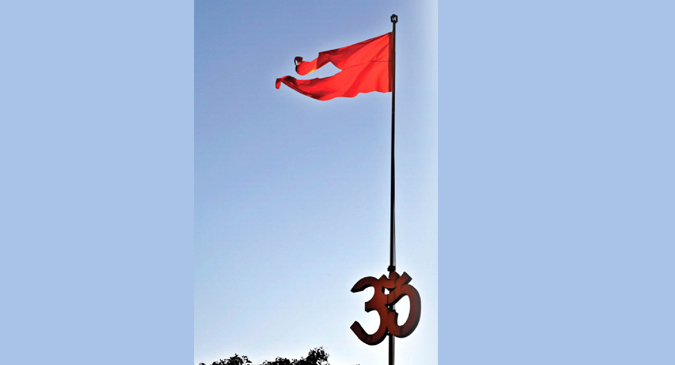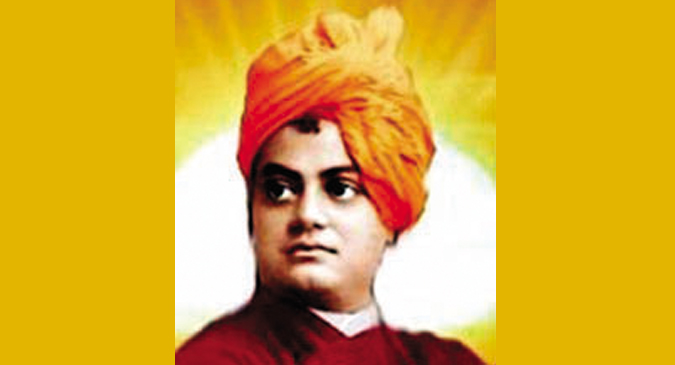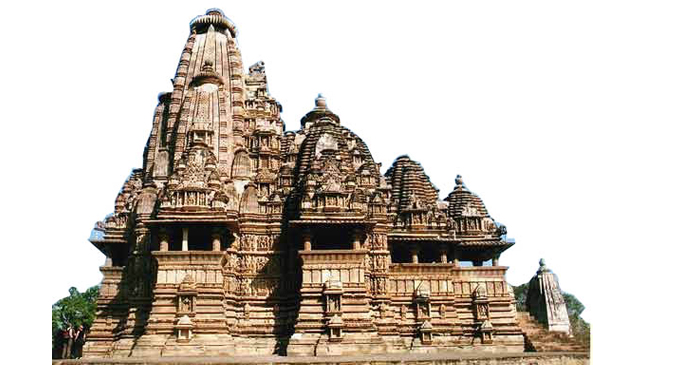In the last of a two-part series on Hindusim, writer P Girish dwells on power of Hindusim as the most potent force that can transform the lives of human all over the world forever
Girish P
A majority of us Hindus love animals. Our philosophy in favour of vegetarianism is a matter of ethics rather than healthy eating habits. Our thought patterns are guided by our ‘Vasudaiva kudumbakam’ Hinduness and the belief that God is omnipresent in every form. Every form of life is entitled to protection and nurture. Hindu mythology has, in its own way, contributed to this idea. Have you noticed how almost every animal and bird is associated with gods and godesses in Hindu mythology ? The elephant is the vehicle of Indra, while the bull is the vehicle of Shiva and Parvati. Vulture is associated with Vishnu, while the lowly mouse is revered as the vehicle of Shri Ganesha. Thus every act of dana is an offering to the God himself. Do you know we have temples in India where people feed mice? It is not uncommon to see people offering milk to cobra as part of Hindu ritual? All living beings are creations of God and no life-form is haram or insignificant.

As for our attitude towards nature, for Hindus it is Matha Bhoomi or Mother Earth. Our approach to the earth and the environment is one of devotion, not exploitation. The West is slowly veering towards this concept. It started off with ‘Exploitation of nature’ as a model of development. Then they tried for a transactional relationship. It didn’t work either. Now they have to accepting environmental issues such as global warming as crucial and are coming around to the view that the best way to ensure environmental protection is to cultivate devotion towards ‘Mother Earth’. Do you know that the annual ‘Earth Day’ in the USA in 2011 started with ‘Prithvi Sukta’ from Atharva-Veda (composed around 1200 BCE) invoking Goddess Earth? The Suktha says: ‘Mata Bhumih Putroham Prithivyah’. (‘Earth is my mother. And I am her son.’) and it is regarded as the oldest and the most evocative invocation to Nature.
Just as Hinduness resonates with modern environmentalism, Yoga and Meditation too have gone international in a big way with its adherents adopting new variations to suit their lifestyles. Today Yoga has far more followers than many belief systems do in the world. One only needs to google for ‘Yoga in America, Europe’ to see its great popularity and spread.

“Every nation has a corresponding national idea. This idea is working for the world and is necessary for its preservation —Swami Vivekananda” The world is slowly coming back to embrace our Hindu philosophy. Inclusive Hinduness is seen by many as the method by which today’s conflicts can be addressed. The conflicts which see around us today in countries such as Syria, Iraq, Afghanistan or Nigeria stems from the Islamic dogma that ‘We alone have the monopoly over Truth’. The best antidote would be to address issues at the fundamental level by effectively countering divisive ideas with an inclusive one. The idea that there are different paths to their so-called Truth and that divinity in all religions should nullify the ideologies that stoke religious and sectarian violence. Thus, along with democracy, secularism, holistic living in harmony with nature is the message of peace.
I am not implying everything is so rosy or hunkydory at home. Our country continues to be plagued by poverty, illiteracy and other maladies. A land, where Kabirs and Ravidases were revered, is seen today to be jealously stuck with the stigma of racial discrimination. Despite all this, Bharat has come a long way in fighting these evils. But we need to go much farther. Only an empowered and enlightened people of a strong Bharat can make a difference while claiming to be ambassadors of change. We have to overcome our weaknesses such as lack of knowledge about our country’s glorious past and its rich heritage and culture. We need to learn about our past in order to be proud and confident about ourselves to move towards the future. Our Hinduness is not a gift that we can keep to ourselves. It is so powerful that it can move and transform the whole world. Its spark can set the world aflame while taking it into a new millennia of enlightenment.

The essence of Hinduism is derived from the Vedas, our holy scriptures. So one can still continue to be called Vedic even if he or she has never visited Bhratvarsh, nor read any Indian text but still follows the basic tenet of rejecting falsehood, accepting truth, and being inclusive. Hence the identity of Hinduness transcends geographic barriers. It has the dynamism to adapt itself to the diversities of the whole world and to make it a better place. To understand this and to understand who we really are is the first step towards making a fundamental difference in the world.
(The writer is Engineer at ISRO)













Comments